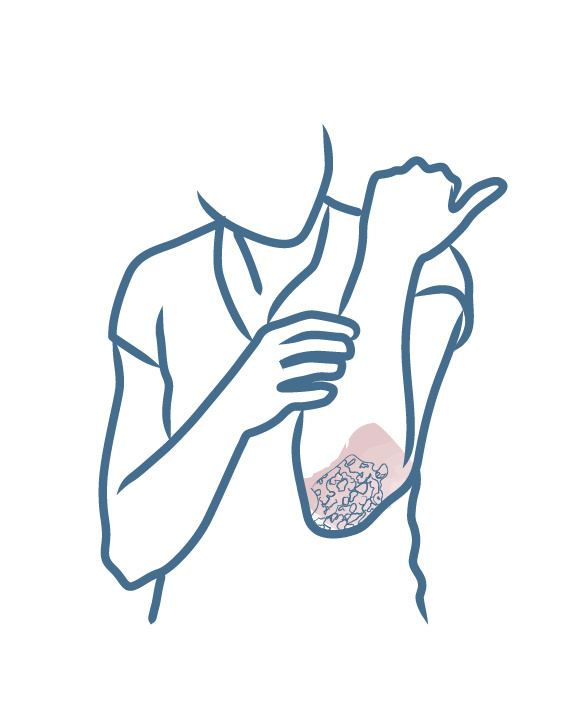-
Your concerns
Our articles to help you gain a better understanding
-
Our solutions
-
Ducray Dermatological laboratories
Our articles to help you gain a better understanding

Psoriasis is generally diagnosed clinically, i.e. based on a visual examination of the lesions by a dermatologist. The clinical signs of psoriasis are often so characteristic of the disease that there can be little doubt about the diagnosis. However, this is not always the case, and psoriasis can be confused with other skin diseases, in children and adults alike.
For example, it is sometimes difficult to tell the difference between psoriasis and eczema. Eczema is a chronic, inflammatory skin disease. The most common and well-known form is atopic eczema, also known as atopic dermatitis. This is a hereditary form of eczema which mainly affects young children but which is sometimes seen in adults. Treatment mainly involves cortisone creams also called topical corticosteroids.
Psoriasis and eczema have many things in common: they are both chronic diseases which alternate between flare-up and remission periods. The plaques are red and itchy, day and night. Both diseases can quickly become debilitating and have a major psychological impact on patients: fear of others staring, isolation, social difficulties, and problems with friends and family.
However, patients can suffer from both psoriasis and eczema at the same time. Some of the clinical signs of psoriasis can appear similar to those of eczema, for example when harsh or irritating products are applied to the skin that are not suitable for psoriasis plaques.
Psoriasis-prone skin

Skin prone to stubborn dry plaques
NEWSLETTER
Dermatological expertise
To better understand your skin and hair, discover our exclusive content and innovative care products designed to improve your quality of life..